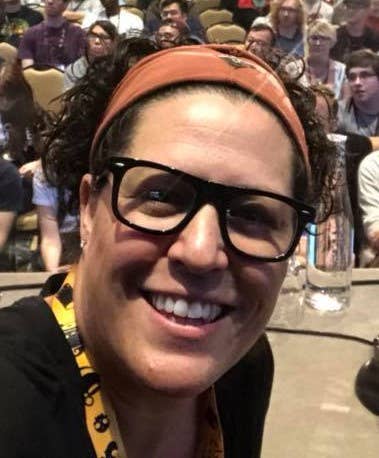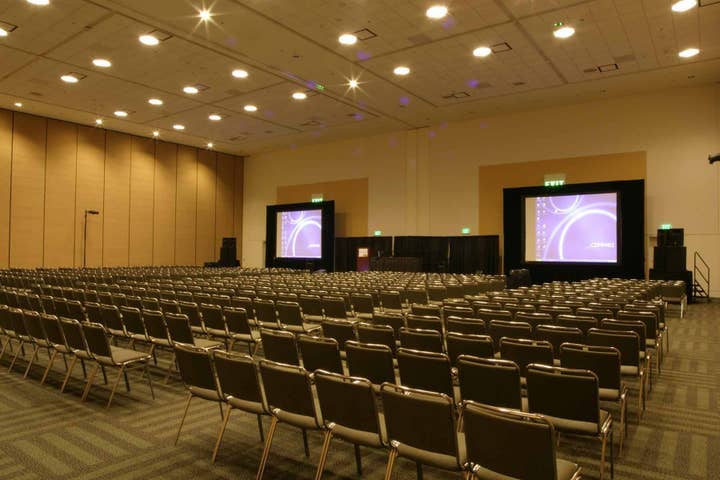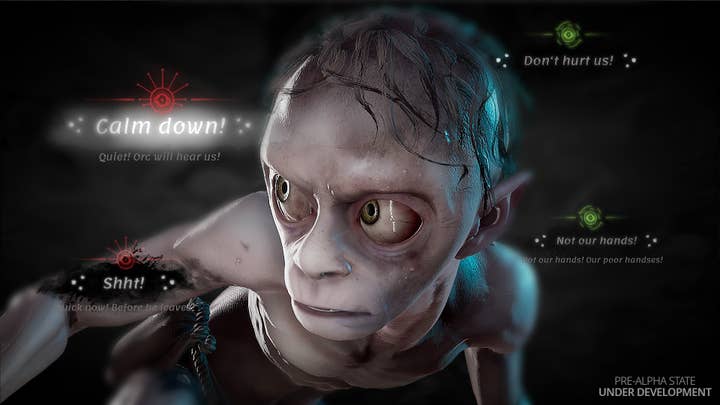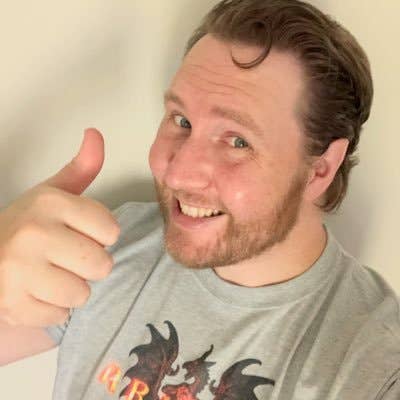"Feast and famine": How the pandemic influenced games public relations
Is the pandemic a blip or the herald of a new age of public relations?
2020 was a real Tale of Two Cities scenario for the games industry. It was the best of times, with record-breaking revenue and significant increases in the number of people playing video games. It was the worst of times, with countless delays, layoffs, and an untold amount of human suffering.
Public relations experts in the industry experienced all these and more, sometimes simultaneously. The increased attention on gaming meant more chances to share projects with larger audiences, but it also brought the very real threat of titles getting lost in the cacophony of digital events. That's assuming PR was able to develop a sound digital strategy with hardly any preparation. Yet beyond the new audiences, channels, risks, and rewards, the key takeaway for some PR experts was a need for healthier work habits and better, more understanding relationships with each other.
The COVID pandemic couldn't have happened at a worse time for public relations. While the general public looked forward to PAX East and GDC 2020, agencies juggled plans for DICE, E3, Gamescom and more, in addition to PAX and other early year events. In-house PR with no plans for GDC waited to see what happened before making the call to work from home. External agencies started noticing warning signs sooner.

For Stephanie Tinsley, head of Tinsley-PR, the first ominous sign of change surfaced as early as January.
"I realized this would affect our campaigns almost immediately when people in America and Europe started reporting infections and the US administration at the time didn't act immediately on any preventative measures," Tinsley said.
Tinsley's team started planning some measures of uncertainty into their February schedules and advised their clients accordingly. By the end of the month, there was little room left for doubt. PAX East had gone ahead as planned, but it was an uneasy event. Sonia Im, public relations director at One PR, was closely monitoring the event as COVID case reports gradually increased. Developers pulled out, and then in the middle of PAX, Evolve PR's Wout van Halderen received a call forewarning him that GDC 2020 was going to be cancelled.
"Late February was still the 'wash your hands and don't touch your face' part of the COVID-19 pandemic, and PAX was still going strong," he said. "I was still in the middle of preparing the launch of Mortal Shell, and all of a sudden there were a lot of question marks on my timelines. I remember it took a few weeks until 'We are monitoring the situation' turned into 'We are cancelling the event.' Once GDC fell out, everyone was waiting for news about E3 and Gamescom."
It was a similar situation for Tinsley.
"I remember the sinking feeling I had after GDC was cancelled. I ended up essentially retooling the entire announcement campaign strategy from the PAX East show floor... from my phone"
Stephanie Tinsley, Tinsley-PR
"We were going from PAX in Boston to GDC in San Francisco almost back-to-back, so almost everything for GDC was already in place: hotels, flights, appointments -- whole schedules were already entirely built out by then. I remember the sinking feeling I had in my stomach after I found out GDC was going to announce they were cancelling the show. I ended up essentially retooling the entire announcement campaign strategy with Quebec City-based developer Sabotage for its GDC-timed announcement for Sea of Stars from the PAX East show floor that Friday afternoon -- all from my phone."
As problematic to schedules as the initial COVID restrictions were, the impact was far from uniform. Charlene Lebrun, head of Player Two PR, said that, like many smaller agencies, her company had limited budget to plan for major events, and their clients often didn't have a chance to stand out at E3 anyway. Missing out on GDC was a significant problem, though not just because of exposure. Im said one of the biggest problems for publishers working with independent developers was funding.
"While indies generally receive a discounted rate to exhibit, several expenses had already been paid for, which was a concern for some," Im said. "Moreover, indies largely don't have a large budget that can be shifted to paid promotions like ads or influencer programs. The impact varied given their investments, size of company, and needs... but fortunately the shift to digital events was easier than in other industries."
Of course, "easier" doesn't mean it was actually "easy." Travis Shrodes, former NIS America marketing supervisor and current Yakuza brand manager at Sega America, said pandemic planning takes at least 20% longer than normal planning. That's in addition to the general adjustments facing the Sega team with no planning time between normal operations and immediately entering work from home.

External agencies had an additional layer of challenges working with small, sometimes single-person development studios or maintaining their reputation for quality under these new circumstances.

"Some of the developers we work with [have] children to look after 24/7 while schools are closed," Lebrun said. "Some had difficult personal situations, and we had to consider the whole time since the pandemic started as a big case of force majeure, and be as flexible as we could. That means working on campaign plans with the info we have even when everything is on hold, so that we're prepared for a last-minute start."
"There wasn't one campaign that was left unscathed by COVID," Tinsley said. "For our clientele, which varies from AAA multi-platform titles to small, independent projects, each approach, strategy and budget is different so it wasn't a one-size-fits-all solution in terms of restructuring our plans for their objectives."
The same was true for Lebrun and PlayerTwo, though with an unexpected silver lining. Lebrun said no E3 meant a landscape potentially more open to different titles and ways of learning about them, actually creating new opportunities both for the agency and its clients.
"We had to rethink what was possible," Lebrun said. "Revealing Dustborn at the 'E3' Future Games Show was a success I'm sure wouldn't have been possible to achieve otherwise."
The new obstacle was familiar in some ways: choosing the right audience and the best way to communicate with them. For Tinsley, this challenge unfolded over just a few days. The original plan for developer Sabotage was to hold a Sea of Stars presentation for press and interested parties during GDC, then time the game's Kickstarter campaign to coincide with the embargo lifting on impressions pieces. It was a win-win for everyone.
"Fans would have a lot of information about the project, the media would have first dibs for their audiences and crucial behind-the-scenes access to the game and its creators, and Sabotage would hopefully make enough noise to have a successful Kickstarter campaign," Tinsley said. "And then GDC was canceled."
"We all had plenty of time to really look at not just what other companies are doing but also what our fans and influencers are doing"
Travis Shrodes, Sega America
In barely a week, Tinsley and her team came up with a new way to deliver the demo, identified a platform that -- hopefully -- wouldn't crash under the load of big video conferences, and created a professional set for Sabotage to use in the presentation. All this was done while coordinating time slots for interviews with press and other partners. It was unprecedented for Tinsley, but she called it "a resounding success."
"When the embargo lifted there was no hint that anything was different behind the scenes -- the readers of the media articles still received the same preview if we'd done this live at GDC, and our feedback from the media was super positive on the whole 'digital event' format," Tinsley said. "The Kickstarter was fully funded in less than seven hours, and it ushered in a new format for presenting game demos. We'd replicate that exact format several times over the next 12 months with our other clients' games."
Uncertainty still dogged the shift to digital events. Naturally, there was no previous research on such cases. Im and Van Halderen both described digital events and the IGN Summer of Gaming event as calculated risks with no indication what results to expect or if it and similar events would even work.
"The thing was to be more sensitive and mindful of how others, namely media, were adapting to the change on their end," Im said. "Building in more time to work with our contacts was key, and we know many were appreciative of this courtesy. Aspects such as interviews could be remote shifted in PR planning with our partners. As the scope and budget of each project is different, it isn't as easy as 'Let's take everything remote,' so our focus is on 'What else can we do?'"

The importance of "what else can we do" soon became apparent for both Van Halderen and Im. The instantly-crowded digital space meant their clients missed out on the crucial instance of being discovered and sometimes created a risk of over-exposing to the wrong audiences.
"Initially it was great that we could choose to be on so many showcases in a short amount of time, but at the same time that spread our assets and developers a little too thin, and we found that you were often talking to the same audience several times," van Halderen said. "Being able to get out of the noise with your announcements is a little harder to do when all the music is playing at the same time. You have some control by providing exclusive content here and there, but in a lot of cases, media and the general public are receiving their information at the same time."
Van Halderen and the Evolve team looked for a way to replicate the hands-on nature of events as a way to counter this imbalance and pioneered a different kind of digital showcase with Daedalic Entertainment in March 2021. Evolve hosted Daedalic's showcase using the platform Remo, creating digital coffee tables and lounges where press could mingle and rooms dedicated to one-on-one and group developer interviews. The goal was creating an event that was entertaining and had value, something that couldn't be done with an email or YouTube video.

"I think media is already suffering a bit from showcase fatigue, so we were definitely looking for mutual benefits," he said. "Having breakout rooms and the ability for people to talk amongst themselves was a part that you usually miss when watching a show on your own, so we were pretty happy seeing people interact. We briefly chatted about having pizzas delivered to all participants, but setting that up globally was a little more hassle than it was worth."
From a coverage standpoint, van Halderen cites the Future Games Show as pivotal in the Daedalic event's success. It was a "1-2 punch" where media that attended the event had a distinct advantage over outlets that didn't, adding to the event's value.
"After all, if you have to write about something everyone else also saw, it's a lot harder to come up with unique coverage."
For every story of innovation and triumphing in adversity, there are failures that remain untold. It's still too early to tell how effective 2020's plans were, to say nothing of the "feast and famine" moments, as Lebrun called them, between the major successes.
"As much as the industry has benefited from the pandemic financially, it has not been universal nor evenly distributed," Shrodes said. "I don't think there's anyone who doesn't look at parts of 2020 and think 'a year of outliers,' but some elements are clearer than others at this point. There are again, lots of factors at play looking into the next year."
One thing Shrodes believes is certain is that the pandemic "reset" expectations of what the games industry can and should be like. It's certainly true for the agencies and publishers I spoke with, all of whom agreed digital events will factor into planning as things return to normal. Convenience and cost play significant roles, as does the chance to reach larger groups of fans and press. COVID might have reset these expectations, but some believe the changes 2020 brought to public relations were inevitable anyway.
"As the scope and budget of each project is different, it isn't as easy as 'Let's take everything remote,' so our focus is on 'What else can we do?'"
Sonia Im, One PR
"I heard an economist describe the COVID economy as not necessarily an outlier, but rather an accelerant pushing consumer behavior forward a decade," Shrodes said. "Doing something different and leveraging new and upcoming channels was really important. I think we all had plenty of time to really look around at trends online and become a little more clear eyed on not just what other companies are doing but also what our fans are doing, what influencers are doing."
Im agreed, saying "We know what our end destinations -- aka goals such as launch -- are but how we get there could be a multitude of ways with unexpected alternate path and contingency plans. Be creative. We're all going through this together, if there ever was an opportunity to try non-traditional strategies, now is the time."
The most important takeaways were less about tactics and evaluation, however, and more about prioritizing beyond the strategies.
"What we can't forget is the more personal side of all of this," van Halderen said. "What was very challenging was (or is still) to put on that PR face in the morning and push some news while the world is on fire. 2020 put a spotlight on a lot of pain, and in this job there is a fine line between bringing distraction in a terrifying time and being incredibly tone deaf during events that are currently impacting millions of people."
For Tinsley, it meant putting the mental health needs of her staff ahead of any plans. Remote offices always meant blurring the boundaries between leisure and work. The enforced isolation meant the threat of burnout was very real, though, with different ways for people to manage their work-life balance.
"It's a rare occurrence that a boss tells their staff, 'Hey, don't work so much. That's what office hours are for.' But over the last year it's been really important to help set that boundary and also make sure I'm setting the example, too," Tinsley said.
Shrodes hopes he, his colleagues, and everyone else can take those same lessons and apply them not just to their work, but to life in general.
"There is no doubt there will be long lasting effects that go beyond just the economic, and there's no way to reflect on that while you are living it. People's lives were severely impacted in ways both visible and not, even if you weren't directly affected by the illness itself," he said.
"It's my hope that coming out of this we can maybe try to all be more accommodating and patient with one another, that we get a little more in touch with our health and relationships, especially ones that we've neglected."